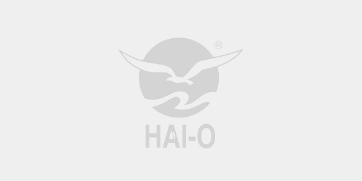By Mikhail Raj Abdullah
KLANG, June 20 (Bernama) -- Hai-O Enterprise Bhd's group managing director Tan Kai Hee never fails to pay tribute to the late Tun Abdul Razak in opening the door for the company's successful and pioneering foray into China.
He said the deft move by Malaysia's second Prime Minister to establish diplomatic links with China in 1974 prompted Hai-O - now ripe for a Main Board listing - to make tracks into what was surely a closed market economy then.
Within a year, the company began sourcing suitable products and raw materials to produce traditional Chinese medicines and with Hai-O's branding, they became household products.
This, together with Malaysia's increasingly health-conscious populace, was a potent mix which generated rising revenues for Hai-O, he said when tracing the company's history in an interview with Bernama here today.
It culminated in the company being "cash-rich and debt-free" as Tan describes it, financially well-positioned for a promotion to the Main Board of Bursa Malaysia in two to three months. Hai-O was listed on the Second Board in 1975.
MAIN BOARD LISTING
"Shareholders and investors have full confidence in us as they are cognisant that we will be able to execute expansion plans more quickly after being promoted to the Main Board," he said.
"Our dividend policy of distributing 50 percent of net profits annually also puts us in good stead among the investing community."
OSK Securities last month rated Hai-O as a "long-term buy" given its exciting prospects.
The share price, which averaged 90 sen last year, has been gaining rapidly and is now trading at RM2.92.
Just last week, Hai-O turned in impressive results, reporting a 29 percent hike in revenue to RM189.346 million from RM146.798 million while doubling pre-tax profits to RM30.608 million from RM15.126 million.
"We came in at a critical time as not everybody was allowed to visit China at that time," Tan said.
"Their medicines were one of the most saleable products given the hunger for such products from China. They were cheap, yet very effective.
"We grabbed the opportunity to bring in many branded medicinal preparations such as health drinks, herbs, tonics and many others."
CHOOSING THE RIGHT PRODUCTS
Against a backdrop of health products sold anywhere and almost by everyone, Tan said Hai-O exercised caution, "only importing patented products approved by the Ministry of Health."
Products from China are plentiful "but we have to choose the right ones."
"Our business strategy is to build clients' trust by selling genuine quality products at fair price and give them the Hai-O branding," he said.
"It was a good start. We sometimes recorded a 20-50 percent increase in sales in the days after listing in 1975."
Links to China were further consolidated in 2002 when Hai-O joined hands with Peking Tongrentang to operate retail counter services offering medicinal consultation to the public at Sun Complex in Kuala Lumpur.
The renowned company has a 338-year history, famous for providing health practitioners for the emperor during the Qing dynasty.
With such credentials, "stationing Chinese physicians in medical halls drew big crowds," said Tan.
The venture with Peking Tongrentang "strengthened our position" as it is the biggest traditional medicine company in China, he said.
SIGNIFICANT PORTION OF DISTRIBUTORS ARE MALAYS
A notable transformation for Hai-O is in gaining prominence among Malay consumers from previously a mainly Malaysian Chinese clientele.
Since the setting of its multilevel marketing (MLM) in 1994, Malay consumers constitute a significant portion of its customer base and sales force.
Tan cited aggressive MLM campaigns and sales of "Pe-Er" tea - the star performer among its products - as factors for Hai-O turning in an impressive 29 percent increase in turnover for FY2007.
Of Hai-O's 60,000 MLM distributors, 90 percent are Malays.
Also, 90 percent of MLM sales comprise Malay customers. "We have 100 crown diamond managers who are Malays - those who have chalked up RM4 million or more in sales.
"The MLM concept is working very well for Hai-O where the Malay consumer market is significant," said Tan.
Hai-O's growth via networking was nothing short of phenomenal - to date, it has over 55 outlets, 15 franchises nationwide and over 120,000 members through its Hai-O Raya loyalty programmes.
The wholesale division has a customer base of over 100 wholesalers, 3,000 retailers, including Chinese medical halls, while its multilevel marketing division has over 60,000 distribution agents.
The group was credited by Malaysia Book of Records in 2001 with having the largest number of traditional healthcare chain stores in the country.
Tan also speaks highly of "Pu-Er" tea - regarded as a wonder tonic with numerous health benefits ranging from removing toxins to improving blood circulation.
Sales of Pu-Er tea for the 2007 financial year rose to RM10 million.
Providing a breakdown of the group's turnover, he said the faster-growing MLM division contributed 50 percent of revenue, wholesale 30 percent and retail about 20 percent.
VENTURING ABROAD
Tan also said Hai-O is looking abroad, with plans afoot to penetrate the populous and lucrative markets of Indonesia and China.
"We have already met our partners in Jakarta and we hope to start operations next year," he added.
"As for China, we are now sourcing for the right made in Malaysia products to market to China."
Asked why Hai-O was going to China when it is importing products from there, he said: "Malaysia, too, has some good medicines and health products such as Tongkat Ali, Kacip Fatimah, etc."
Looking ahead, Tan said the government's move to allow some hospitals to provide traditional treatment and medicine alongside conventional medicine augurs well for Hai-O.
"We invited Beijing physicians to Malaysia to meet a few private hospitals, following which they are keen to have joint ventures with Peking Tongrentang, which has already linked up with Alexandra Hospital in Singapore," he said.
He cited how acupuncture has become popular, pointing out that bringing in Chinese physicians can also "boost health tourism."
"Chinese physicians have been able to resolve some conditions which western medicine found difficult to heal, but China never denies the effectiveness of western medicine nor their doctors," said Tan.
He said hospitals offering both natural and conventional treatments "is the right way as people will have a choice," a trend which Hai-O is well-positioned to take advantage of.











